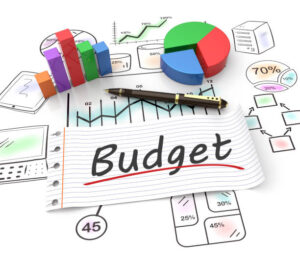10 Money Mistakes to Avoid in Your 20s, 30s, and 40s
Money is one of the most powerful tools we have to shape our lives, yet it is also one of the most misunderstood. Whether you’re just starting your career, building a family, or preparing for retirement, the financial decisions you make in your 20s, 30s, and 40s can have a lasting impact on your future. According to a 2023 survey by the National Endowment for Financial Education, nearly 60% of Americans admit to making money mistakes that cost them thousands of dollars over their lifetime.
Financial experts like Suze Orman emphasize, “Your financial life is a marathon, not a sprint. The habits you form early on will either propel you forward or hold you back.” So, what are the most common money mistakes to avoid in each decade of your life? And how can you make smarter choices to build lasting wealth and security?
In this comprehensive guide, we will explore the top 10 money mistakes to avoid in your 20s, 30s, and 40s, backed by research, expert advice, and practical tips. Ready to take control of your money and avoid costly errors? Let’s get started.
—
Why Avoiding Money Mistakes Matters
Before diving into decade-specific mistakes, it’s important to understand why avoiding money mistakes is crucial. According to a 2022 study by the University of Chicago’s Becker Friedman Institute, poor financial decisions in early adulthood can reduce lifetime wealth accumulation by as much as 30%. This means the wrong choices today can cost you hundreds of thousands of dollars down the road.
Key reasons to avoid money mistakes:
- Compound Interest: The earlier you save and invest, the more your money grows exponentially.
- Debt Avoidance: High-interest debt can erode your financial stability and limit future opportunities.
- Stress Reduction: Financial mistakes often lead to stress, which impacts mental and physical health.
- Wealth Building: Smart money management creates opportunities for investments, homeownership, and retirement security.
—
Money Mistakes to Avoid in Your 20s
Your 20s are a pivotal decade for setting the foundation of your financial future. Unfortunately, many young adults fall into traps that can delay wealth building and create long-term challenges.
1. Living Beyond Your Means

It’s tempting to enjoy newfound income and freedom, but spending more than you earn is a recipe for debt and stress. According to a 2024 survey by Bankrate, 45% of Americans in their 20s live paycheck to paycheck.
Avoid this by:
– Creating a monthly budget that tracks income and expenses.
– Prioritizing needs over wants.
– Using the 50/30/20 rule: 50% needs, 30% wants, 20% savings.
2. Ignoring Credit Scores
Your credit score affects your ability to get loans, rent apartments, and even land jobs. Yet, many in their 20s neglect building or monitoring their credit.
Expert tip:
Financial guru Dave Ramsey says, “Your credit score is your financial report card. Treat it with respect.”
How to build good credit:
– Pay bills on time.
– Keep credit card balances low.
– Avoid opening too many accounts at once.
3. Not Saving for Retirement Early

Starting to save for retirement in your 20s can make a huge difference due to compound interest. Fidelity reports that starting at age 25 instead of 35 can add nearly $200,000 to your retirement savings by age 65.How to Plan for Retirement When Self- Employed: 7 Essential Tips to Secure Your Future
Action steps:
– Contribute to employer-sponsored plans like a 401(k).
– Open an IRA if no employer plan is available.
– Aim to save at least 15% of your income for retirement.
4. Relying Too Much on Credit Cards
Credit cards can help build credit but can also lead to high-interest debt if not managed properly. The average credit card interest rate in 2025 is around 20%, which can quickly balloon balances.
Tips for responsible credit card use:
– Pay the full balance each month.
– Avoid cash advances.
– Use cards with rewards but only if you can pay off balances.
5. Skipping Budgeting and Financial Planning

Without a clear plan, it’s easy to lose track of money and goals. A study by the National Financial Educators Council found that 60% of young adults do not have a budget.How to Create a Budget That Works for You
How to start budgeting:
– Use apps like Mint or YNAB.
– Set short-term and long-term financial goals.
– Review and adjust your budget monthly.
—
Money Mistakes to Avoid in Your 30s
Your 30s often bring increased responsibilities such as family, mortgage, and career advancement. Financial mistakes in this decade can stall progress toward wealth building.
6. Carrying High-Interest Debt
Credit card debt and other high-interest loans can drain your finances. The average credit card debt for Americans in their 30s is approximately $6,500 according to Experian’s 2024 report.10 Debt Management Tools That Can Help You Take Control of Your Finances
How to tackle debt:
– Use the debt snowball or avalanche method.
– Avoid taking on new debt.
– Consider refinancing high-interest loans.
7. Neglecting to Increase Retirement Contributions
As your income grows, it’s important to increase your retirement savings. Many people keep saving the same amount, missing out on potential growth.
Expert advice:
Vanguard’s research shows that increasing retirement contributions by just 1-2% annually can significantly boost your nest egg.
8. Failing to Protect Yourself with Insurance
Health, life, disability, and property insurance protect your finances from unexpected events. Many in their 30s underestimate these needs.
Insurance checklist:
– Health insurance with good coverage.
– Life insurance if you have dependents.
– Disability insurance to cover income loss.
– Homeowners or renters insurance.
9. Overspending on Lifestyle Inflation
As income increases, lifestyle inflation leads to spending more on non-essentials, leaving less for savings and investments.
How to control lifestyle inflation:
– Automate savings increases.
– Set clear financial goals.
– Practice mindful spending.
10. Not Having an Emergency Fund

An emergency fund cushions against job loss, medical bills, or unexpected expenses. The CFPB recommends saving 3-6 months of expenses. 10 Creative Ways to Fund Your Emergency Savings
Tips to build your emergency fund:
– Start small and build gradually.
– Keep funds in a high-yield savings account.
– Avoid using it for non-emergencies.
—
Money Mistakes to Avoid in Your 40s
Your 40s are often peak earning years, but also a time to prepare seriously for retirement and long-term security.
11. Overspending on Lifestyle Upgrades
Buying luxury cars, bigger homes, or expensive vacations without considering long-term impact can hurt your financial goals.
Better alternatives:
– Invest in appreciating assets.
– Prioritize experiences over things.
– Set spending limits.
12. Not Adjusting Your Emergency Fund
With more financial responsibilities, your emergency fund should cover 6-8 months of living expenses.
13. Loaning Too Much to Family or Friends

While helping loved ones is admirable, overextending financially can jeopardize your security.
Advice:
– Set clear boundaries.
– Consider loans as gifts if you can’t afford to lose the money.
– Get agreements in writing.
14. Neglecting Retirement Catch-Up Contributions
At 50, you can contribute extra to retirement accounts. Missing these catch-up contributions can reduce your retirement readiness.
15. Being Too Conservative or Too Risky with Investments

Balancing risk and reward is crucial. Avoid being overly cautious, which can limit growth, or too aggressive, which can expose you to losses..Finding the Sweet Spot in Investment
—
Additional Tips for All ages
- Educate yourslf: Financial literacy is key. Websites like Investopedia] (https://www.investopedia.com) and Nerd Wallet].(https://www.nerdwallet.com) offer free resources.
- Seek Professional Advice: A certified financial planner can help tailor strategies to your goals.
- Automate Savings: Automating contributions reduces temptation to spend.
- Review Finances Regularly: Schedule quarterly check-ins to adjust budgets and goals.
—
FAQs
How can I start saving if I have a low income?
Start small, even $20 a week adds up. Use budgeting tools and prioritize saving before spending.
Is it better to pay off debt or save?
Generally, pay off high-interest debt first, then focus on saving and investing.
How often should I check my credit score?
At least once a year, but quarterly checks help catch errors early.
What’s the best way to avoid lifestyle inflation?
Increase savings rate as income rises and set clear financial priorities.
How much should I invest in stocks vs. bonds?
It depends on your age and risk tolerance. Younger investors can afford more stocks; older investors should shift to bonds.
—
Avoiding these common money mistakes in your 20s, 30s, and 40s is essential for building a secure financial future. As Warren Buffett famously said, “Do not save what is left after spending, but spend what is left after saving.” By making smart decisions, staying informed, and planning ahead, you can turn money from a source of stress into a tool for freedom and opportunity.
Take charge of your money today—because the best time to start is now.
—
References:
– National Endowment for Financial Education (2023). Financial Literacy Survey.
– University of Chicago Becker Friedman Institute (2022). Impact of Early Financial Decisions.
– Bankrate (2024). Living Paycheck to Paycheck Report.
– Fidelity Investments (2023). Retirement Savings Study.
– Experian (2024). Credit Card Debt Report.
– Vanguard (2023). Retirement Contribution Research.
– Consumer Financial Protection Bureau (CFPB). Emergency Fund Guidelines.
– Quotes from Suze Orman, Dave Ramsey, Warren Buffett.
—








d3p980
ldjzkw
4kxxdb